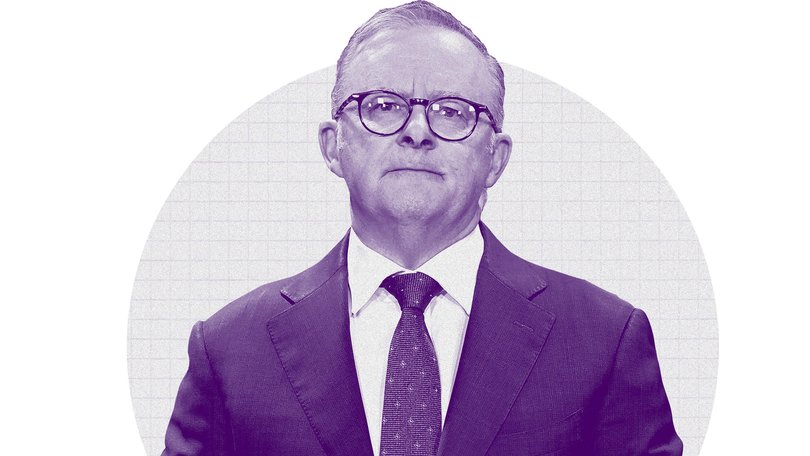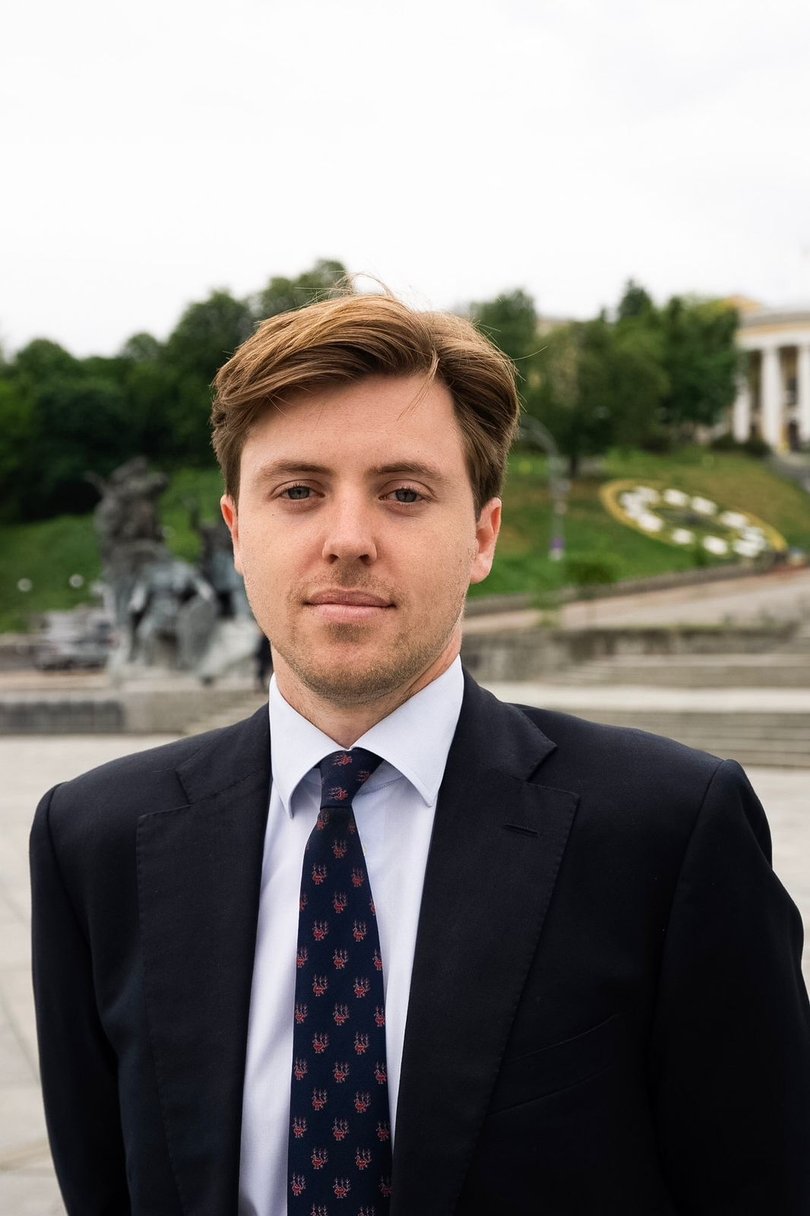Anthony Albanese left out of critical Ukraine meeting on G20 sidelines in Johannesburg, EU issues apology
LATIKA M BOURKE: There was a notable omission from a photograph of Ukraine-supporting allies at a key G20 meeting — Australia’s Anthony Albanese.

The photograph of 13 world leaders seated in a semi-circle on the sidelines of the G20 in Johannesburg was a demonstration of the benefits of leader summits.
When the timing is right, they are unrivalled opportunities to meet and agree on common positions.
This was the case on Saturday, when roiled by the text of a 28-point pro-Russian “peace plan” leaked to US media and later backed by the White House, European leaders hastily met on the sidelines of the G20.
Sign up to The Nightly's newsletters.
Get the first look at the digital newspaper, curated daily stories and breaking headlines delivered to your inbox.
By continuing you agree to our Terms and Privacy Policy.The semi-circle of power consisted of the European Council President and host Antonio Costa, the President of the European Commission Ursula von der Leyen, Canada’s Prime Minister Mark Carney, Finland’s President Alexander Stubb, France’s President Emmanuel Macron, Germany’s Chancellor Freidrich Merz, Ireland’s Taoiseach Michael Martin, Italy’s Prime Minister Georgia Meloni, Japan’s newly-minted Prime Minister Sanae Takaichi, the Netherlands Prime Minister Dick Schoof, Norway’s Prime Minister Jonas Støre, Spain’s Prime Minister Pedro Sánchez and the UK’s Prime Minister Keir Starmer.
But there was a notable omission from the ensemble of Ukraine-supporting allies — Australia’s Anthony Albanese.
The Prime Minister was expecting an invite — legitimately so — given that Australia under his leadership is one of the few non-NATO countries to pledge support to the Coalition of the Willing, a potential force of Western troops and military assets that would be stationed in Ukraine after any peace deal.
Officially, the reason given for the diplomatic snub was that only the leaders of the G7 and the European Union who were in Johannesburg were invited.
This is why non-NATO Japan and non-EU Canada, which is this year’s G7 host, were there.
But The Nightly can confirm that the Europeans issued an apology to the Prime Minister, indicating that his absence, along with Turkey’s, was a mistake and that he should have been in the room.
After the pow-wow, the EU, Germany, France, United Kingdom, Italy, Spain, Finland, Netherlands, Ireland, Norway, Canada and Japan all issued a statement, expressing concern about the way the Russian-proposed peace agreement would curtail Ukraine’s sovereignty if agreed.
Poland, whose leader, Donald Tusk, was not at the side meeting, signed the statement. Mr Albanese was invited to contribute Australia’s signature afterwards, but declined.
A spokesman for the Prime Minister said: “Australia was not invited to be part of this meeting, but we support the sentiments expressed in the statement.”
The EU’s snub was a mistake by Brussels.
Haste in responding to fast-moving events is understandable but only part of the excuse, as is the mechanics of how this particular meeting was organised.
The invites were sent by President Costa, who heads the Council and not the Commission, which is run by President Ursula von der Leyen, with whom Mr Albanese has more contact.
But the oversight did not just happen because of the crisis mode gripping Europe’s leaders.
It is also set against the backdrop of what is widely perceived in Brussels and Kyiv to be a go-slow approach towards supporting Ukraine, from the Australian Government since Labor’s election.
For example, it took the Government nearly three years to reopen the Embassy in Kyiv, more than two and a half years, after allies, including Canada, with whom Australia shared its diplomatic premises, returned.
And after coming to power in 2022, the Government announced military aid to Ukraine at a tempo that was initially slower than the previous government and of lower quality.
Over time and after substantial pressure, it improved Australia’s support but there has been no new military aid announced for 12 months.
The Government has made just three visits since the start of the full-scale invasion, and Mr Albanese is one of the few allied leaders to have still not signed a Bilateral Security Agreement with Ukraine’s President Volodymyr Zelensky.
Ukraine has signed agreements with some 28 other nations.
Mr Albanese has also decided to boycott NATO, despite being one of only four Indo-Pacific leaders regularly invited to attend, two years in a row.
When presented with a security partnership proposal by the Europeans that would provide Australian companies a prized opportunity to co-buy weapons alongside European partners, Mr Albanese appeared clueless and confused it with NATO.
Mr Albanese also cancelled a call with President Von der Leyen at the last minute to deal with Cabinet factional killings after his re-election, leaving a bad impression.
The redeeming factor in his policy on Ukraine was his quick decision to join the French-British-led proposal for a potential Coalition of the Willing, but this has been the aberration in his Europe policy when it comes to security and Ukraine, rather than the standard.
Added up, these signals have not gone unnoticed, and they do have a cost, as Saturday showed.
Tennyson Dearing, an Australian analyst and political advisor in Kyiv, is a keen observer of Australia’s contributions on the ground in Ukraine.

He told The Nightly: “Australia is a steadfast supporter of Ukraine, but has missed too many opportunities to make itself relevant in this discussion. Unfortunately, it’s not welcome at the adult table right now.”
Supporting Ukraine is not only politically popular; around three-quarters of Australians support providing military aid to Ukraine as well as contributing militarily to uphold any peace, according to a survey conducted earlier this year.
But more importantly, it is in Australia’s direct security interests to contribute its voice to the cast of democracies that say they support Ukraine’s fight against an illegal, colonising invader in Vladimir Putin.
And the original “peace plan” being renegotiated by the Europeans and the Ukrainians, that was put forward by the Russians and the Trump Administration, would not just reward Mr Putin for his illegal behaviour but also incentivise his rogue band of collaborators in Iran, North Korea and China to break what rules remain in the world order.
This would be a direct threat to Australian security, prosperity and freedom.
The document purported to uphold Ukraine’s sovereignty but would do nothing of the sort if adopted.
It would deny Ukraine the ability to field an army the size of its choosing, prohibit it from ever applying to join NATO, and cede the entire Donetsk region, which Russia has failed to win on the battlefield.
It imagines a reprieve for all of Russia’s actions and a reintegration of Russia into the global economy and onto the world stage.
It said that Ukraine could not have NATO troops on its soil — that means if adopted, Russia would get to say where countries like Australia, which would join forces with NATO countries, deploy their military capabilities, overriding Australian sovereignty as well.
“This shameful ‘deal’ is not a solution – it is a dangerous capitulation to tyranny and aggression,” said Kateryna Argyrou, Co-Chair of the Australian Federation of Ukrainian Organisations.
“One of the most alarming aspects of the proposed peace ‘deal’ is the precedent it sets: that borders and sovereignty can be altered by force, and international law can be disregarded. If accepted, it will embolden autocratic regimes like Russia and China.
“We urge the Albanese Government to join our allies, including the UK, Germany, France, Japan and Canada, who overnight released a statement supporting Ukraine and the principle that ‘borders must not be changed by force’.”
Opposition Leader Sussan Ley said there was more Mr Albanese could be doing as of today to show Australia stood by Ukraine in its darkest hour.
“Three years ago, Anthony Albanese made a visit to Ukraine and committed to stand with them during their darkest moment, but today he is failing to live up to that commitment,” Ms Ley said.
“In the meantime, we’ve learnt that the Albanese Government is failing to properly monitor and enforce our sanctions against Russia as fuel derived from Russian oil is flowing through Australian bowsers, including in our defence fuel supply.
“The Coalition will not accept a situation where Labor’s inaction causes Australian consumers to inadvertently fund Russia’s war machine.”
Since his re-election, Mr Albanese has become a more confident, if not strutting, figure on the world stage, headlining a UK political conference, gathering with fellow progressives to warn about the evils of populism and rallying counterparts to copy Australia’s social media ban for teens.
But he has deliberately deprioritised national security at the same time.
With his former political foreign policy adviser Kathy Klugman promoted to Director of National Intelligence, Mr Albanese’s next foreign policy advisor would be wise to remind the Prime Minister that people who proffer platitudes can be easy to overlook, and that bold actions are not just noticed and remembered, but also serve as credentials.

